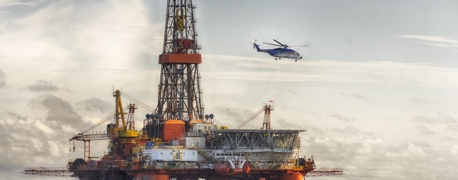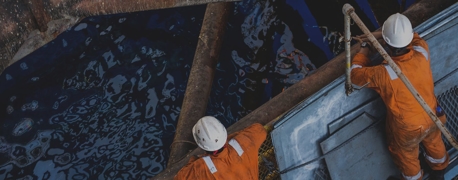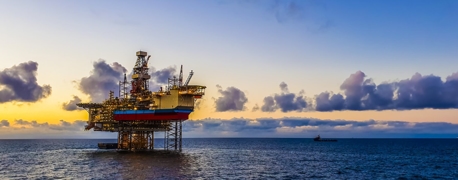Cargo Ships That Drive Themselves: Fake or Future?

The maritime industry is in the midst of a major change, with autonomous shipping vessels becoming more and more common. Major shipping companies, which carry over 90% of the world's goods, have been trending toward greater automation and smaller crews for years already. Industry leaders see fully autonomous cargo vessels as the next logical step. Oskar Levander, VP of Marine Innovation at Rolls-Royce, is one such leader.
While autonomous vessels have been in use for years, maritime workers have yet to see the full impact of this technology on their jobs. With autonomous vessels potentially taking over many of the tasks currently done by human crew members, there is a real danger that maritime workers could find themselves out of work or face increased risks of injury on the job.
Our offshore injury lawyers are watching this trend closely and preparing for the potential legal ramifications that autonomous vessels might bring. As autonomous shipping becomes more widespread, it is important to make sure that workers are protected from any injuries or accidents that may occur as a result of this new technology. In today's article, we'll be discussing what autonomous vessels are and the technological, ethical, and legal challenges they'll represent.
What Are Autonomous Ships?
Autonomous ships, also known as autonomous container ships or maritime autonomous surface ships (MASS), are crewless vessels that transport either containers or bulk cargo over navigable waters with little or no human interaction. MASS could be controlled remotely from a nearby ship, an onshore control center, or even through artificial intelligence and machine learning. This will revolutionize how maritime business is conducted. A fully autonomous ship would be capable of making navigation decisions on its own, charting the most efficient and effective course without human intervention.
Manned ships today are generally equipped with an autonomous navigation system that assists the human crew in carrying out their duties, but the vessel still requires a human captain to make the final decisions. In contrast, autonomous ships are designed to operate without any crew on board and make all decisions themselves. The level of autonomy can vary from ship to ship. The International Maritime Organization classifies ships into four degrees of automation: from degree one, where seafarers are on board to control the ship, to degree four, where the operating system of the ship is able to make decisions and determine actions by itself.
Nanalyze, a financial research firm, believes the profit potential of fourth-degree autonomous ships could mean cargo ships will reach full autonomy before cars.
The Profit & Safety Potential of MASS
The maritime industry has been around for centuries, and it’s a vital part of the global economy; cargo vessels transport goods all over the world, creating millions of jobs. But the maritime industry is facing serious challenges. The cost of labor is high, and maritime injuries are common. Automation provides employers with the ability to bypass serious safety problems, not through safer policies, but by eliminating the human element.
Lowering the cost of labor is the primary profit source for autonomous vessels. An average crew member on a cargo vessel costs $150,000 per year, including salary, provisions, and other needs. Autonomous cargo vessels would not require any crew, which would save companies millions per year.
More savings would come from vessels no longer requiring shift changes or pauses in navigation. Autonomous cargo vessels could reduce traffic by allowing navigation 24 hours a day. This would spread shipping across all hours of the day and limit traffic jams during peak hours. 24-hour navigation would give rise to more efficient routes and navigation developed through constant calculation, saving enormous sums of money in fuel.
Yet another source of profit would be the end of crew injury or death. Automated ships are much less likely to experience losses due to human error, which accounts for 75-96% of maritime injuries. Additionally, the rise of harsher and stronger storms further highlights the benefit of unmanned ships. Tragedies like the sinking of the El Faro (the cause of which our firm investigated and litigated) would never occur again. From the employer's point of view, this is a lucrative possibility: a study from Allianz found that autonomous bulk cargo vessels could prevent up to $900 million in losses per year caused by negligence, fatigue, or disaster.
Piracy is yet another reason companies have considerable reason to invest in autonomous vessels. Remote or fully autonomous navigation, combined with zero human crew members, immediately makes piracy obsolete. Pirates would have no way of seizing or taking control of a ship, as autonomous control would eliminate the need for a human-operated bridge. The lack of human crew members would make ransoms or hostages impossible, eliminating the most lucrative incentive for piracy.
The Obstacles to Full Autonomy on the Open Seas
So what's holding the industry back from implementing autonomous cargo vessels? The biggest challenge is undoubtedly regulatory. The maritime industry is highly regulated, and any change to safety protocols needs to be approved by a variety of governing bodies. The CEO of Maersk, the largest shipping company in the world, does not foresee a future where regulators will ever allow a 200,000-ton vessel to navigate without a human crew. But as autonomous technology continues to evolve, regulations will eventually catch up.
In the meantime, there is already a great deal of interest in autonomous shipping from both business and government leaders. The Port of Rotterdam—Europe's largest port—announced plans to test an autonomous container ship later this year. In 2018, Rolls-Royce unveiled an ambitious plan to create a fleet of entirely autonomous cargo ships by 2025.
While industry leaders forge ahead with investing in MASS, some concerns need to be addressed. One major concern is safety. Before 100% implementation is possible, there will likely be a decade where manned vessels are working alongside autonomous vessels. As we've seen with autonomous cars, the use of autonomous vehicles in human-occupied spaces raises thorny moral questions. If an autonomous vessel must choose between a collision course with a large manned vessel and a smaller manned vessel, how will it choose? How does a machine make an ethical choice?
Another important question to consider is who would be responsible for maintenance on autonomous ships. Complex propulsion and navigational systems highlight the importance of skilled human maintenance instead of devaluing it. With autonomous ships, it will be crucial for companies to have teams of skilled technicians who can properly maintain these vessels. Even if they're simply on standby, it seems obvious to have human technicians on a ship valued at hundreds of millions of dollars in an environment where things go awry all the time. This would ultimately eliminate the potential savings of a fully unmanned vessel and the safety benefits we mentioned earlier.
Finally, it is important to consider the workforce implications of autonomous cargo vessels. As these ships become more prevalent, there will likely be a decrease in the need for manual laborers aboard ships. MASS as envisioned by Rolls-Royce or the Port of Rotterdam would eliminate many jobs in the maritime industry, which would hurt communities that rely on the maritime industry (including most of the communities where our clients live). While new jobs could be created as the maritime industry evolves, these new jobs would potentially take decades to develop.
The Changes to Maritime Law Under Autonomous Vessels
As autonomous cargo vessels become more prevalent, it is important to consider the legal ramifications of these ships. One of the most important questions is who would be liable in the event of an accident. If an autonomous ship collides with a manned ship and causes injury, who would be held liable? The vessel owner, or the company? The legal ramifications of autonomous cargo vessels are still largely unknown, as the technology is still in its early stages. However, there are a few key points about which we can speculate.
First, the vessel owner would likely be liable in the event of an accident. This is consistent with existing maritime law, which holds the owner of a vessel liable for any damages caused by their ship. Second, the company operating the autonomous ship could also be liable. This would depend on the specific arrangements made between the company and the vessel owner. The rise of "captain AIs" suggests that artificial intelligence companies could be held liable for damages caused by MASS.
It is important to note that these are just preliminary speculations, and the legal ramifications of autonomous cargo vessels will likely be determined on a case-by-case basis.
Conclusion
The development of autonomous cargo vessels is an ongoing project with the potential to profoundly change maritime shipping. Major shipping companies are investing in this technology, and it shows promise for increased efficiency and labor savings. However, several potential drawbacks warrant consideration before these vessels become ubiquitous on the high seas. Regulations need to be developed to manage them, ethical issues such as how artificial intelligence prioritizes human life must be addressed, and their impact on the global economy—particularly regarding employment—should be evaluated. Only time will tell whether autonomous cargo vessels will live up to their promise or prove to be too risky for widespread adoption.


